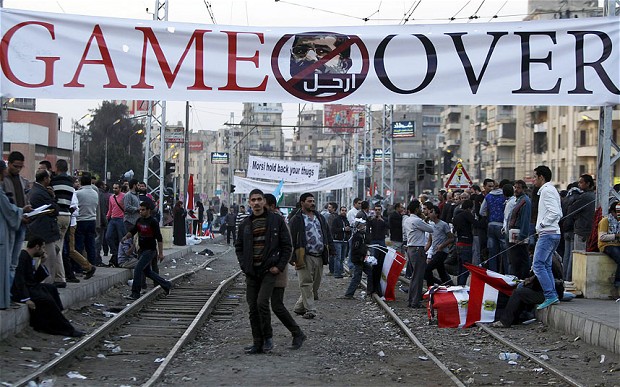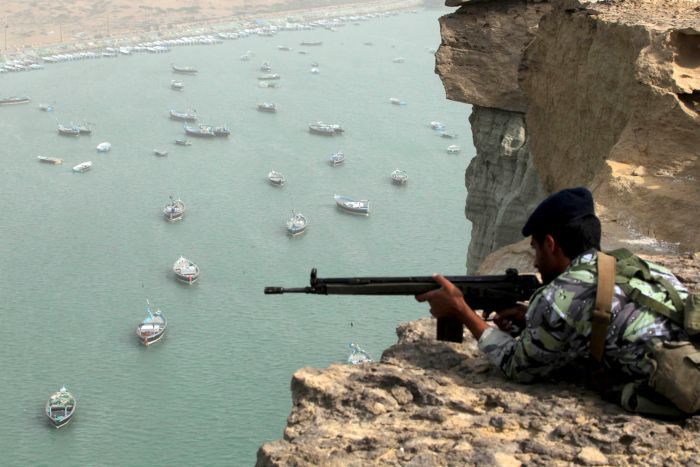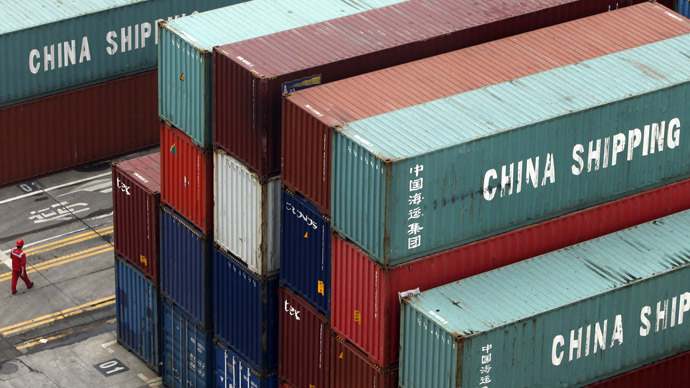US Deputy Secretary of State William Burns was in Cairo this week, meeting with leaders of Egypt’s interim government. The visit took place amidst ongoing protests between supporters of former President Mohamed Morsi, removed from power July 3, and his opponents, including the Egyptian armed forces. Burns offered his assurances that the United States is “firmly committed to helping Egypt succeed in this second chance.”
Burns’ visit comes one week after Egyptian security forces killed more than 50 pro-Morsi supporters in Cairo last week and arrested over 600. During his talks on Monday, Burns reportedly called on the military to avoid politically motivated arrests. In meetings with interim President Adly Manosur, Prime Minister-designate Hazem el-Beblawi and the head of the military, General Abdel-Fattah el-Sissi, Burns emphasized the need for an “inclusive” transition to democracy in Egypt. Thus far, former President Morsi’s supporters have refused to participate in the transitional process and continue to demand President Morsi’s reinstatement.
[captionpix align=”left” theme=”elegant” width=”259″ imgsrc=”http://natoassociation.ca/wp-content/uploads/2013/07/john-baird.jpg” captiontext=”Foreign Affairs Minister John Baird needs to be more careful with Canada’s message to democracies.”]
Burns also sought to dispel rumors that the United States supports either faction in Egypt’s hyper-partisan political climate. However, sitting on the fence has exposed the United States to fire from both sides. Opponents of President Morsi and the Muslim Brotherhood have long accused the United States of backing the Islamist regime. In turn, the Muslim Brotherhood has condemned the United States, interpreting Burns’ visit as support for the alleged coup.
Canadians generally find such unrest and violence, while captivating, decidedly remote. The Arab spring is at times as far from the Canadian mind as Egypt is from its borders. At first glance, there is no obvious reason as to why the state of Egyptian politics might be relevant – or even dangerous – to Canadian interests.
Indeed, historically speaking, Egypt has rarely been a focal point of Canadian foreign affairs. The highlight of Canadian influence in Egypt was during the Suez crisis of 1956, when the Canadian government and then-Foreign Minister Lester B. Pearson moderated talks between Egypt and the three countries that occupied it: Britain, France, and Israel. The tradition of Canadian peacekeeping can be traced back to the Sinai Peninsula, where Canadian troops are still serving today.
Over fifty years later, Canadian ties to Egypt are limited to Official Development Assistance through CIDA (valued at approximately CAD$8.7 million in 2012) and sizeable Egyptian communities in Montreal, Toronto, and Vancouver. Though Canadians share membership with Egypt in la Francophonie, Egypt is not a Commonwealth or NATO member. Bilateral trade between Canada and Egypt is dwarfed by the United States and the European Union, respectively.
As Canadians watch Egypt unravel, it seems the Canadian government has limited cards to play. As Bessma Momani, an associate professor of political science at the University of Waterloo, told the Ottawa Citizen, “There are really no carrots or sticks at our disposal to change the course in Egypt.”
Given the apparent insignificance of Canadian-Egyptian ties in Canadian foreign affairs, the significance of events in Egypt this month to Canadians have been unsurprisingly underrated. In reality, this month’s coup d’état and the subsequent reaction of the Canadian government are a threat to Canadian interests.
It is important to first note that Egypt is highly significant to Canadian interests as an important partner in the Arab-Israeli peace process. As one of only four Arab League members that recognize Israel, Egypt has been an important key to a tumultuous region.
The Canadian government acknowledges on its website that Egypt is a “key Arab partner” and says that “the shared commitment for a just and comprehensive peace in the Middle East lies at the core of Canada’s relations with Egypt.” Political instability in Egypt means that Israel stands to lose a very important friend, if not ally. Given the attention that Canadian Prime Minister Stephen Harper has paid to Israel during his tenure, Egypt’s descent into chaos is an undeniable threat to a key foreign policy objective.
Given Egypt’s importance to Canadian interests, the Canadian government’s response to developments in Egypt ought to be cause for concern.
While touring the ASEAN region earlier this month, Canadian Minister of Foreign Affairs John Baird offered a decidedly partisan assessment of developments in Egypt. Asked by a Wall Street Journal reporter on July 4 to comment on Morsi’s removal from power, Minister Baird declared that the Egyptian President “is accountable for his own actions.”
While Baird’s first message was to call for calm and restraint in Egypt, he said that “the military coup [was] obviously a response to a large and significant…uprising.” Though he made clear that Canada prefers democratic transitions, he added that Egypt “is nothing proximate to a full-western-style liberal democracy.” He highlighted the “substantial amount of support” for Mr. Morsi’s removal.
The Minister’s comments suggest that he and the Canadian government consider the overthrow of President Morsi a step towards, rather than a threat to, democracy in Egypt. These claims are not unfounded. After his inauguration in June 2012, former President Morsi took measured steps to enhance his own position and that of the Muslim Brotherhood in Egypt.
For example, in August 2012 President Morsi issued a constitutional declaration that granted the President full executive and legislative powers, and put the constitution-drafting process under his personal control. Three months later, a further decree stated that all laws and decrees issued by Mr. Morsi were final and unchallengeable by any individual or body until a new constitution had been ratified and a new parliament elected. The November 22 decree also granted the president the power to take “all necessary measures and procedures” against any potential threat to the revolution, national unity or national security.
Mr. Morsi’s constitution was signed into law in December 2012, without contributions from Egypt’s liberals, secularists, or the Coptic Church. While the constitution provided protections against arbitrary detention and torture, it did not protect freedom of expression and religion. In response to protests against the constitution, President Morsi issued a unilateral decree that empowered soldiers to arrest and try civilians in military courts.
The President legitimized these and other measures by claiming that his will represented that of the people. Three weeks ago, thirty million Egyptians gathered to reject this interpretation of popular mandate. In this light, it is clear that Morsi’s removal from power may indeed improve – not challenge – Egypt’s democratic prospects.
It is clear, then, that Canadian support for Egypt’s most recent transition is not unfounded. However, public declarations of support should not be made recklessly.
Condoning the overthrow of any democratically elected government sets a dangerous precedent in Canadian foreign affairs. In the future, Canadian democracy promotion is now vulnerable to carrying less weight.
Given this threat to Canadian integrity, Mr. Baird’s comments, only one day after President Morsi’s removal, were dangerously premature. As a central pillar of Canadian international relations, Canadian democracy promotion should not be tainted by such spontaneous exceptionalism.




